Before we rock out a rather large post, let’s do a little Van Halen-inspired stretching before we start.
There.
All limbered up?
Good!
Well, the Noah movie has apparently been something of an issue in the last little while, and I’ve had this post in the works for a week but spent a day with my son in the hospital and then had a wife that was out of commission for several days. That may mean by the time this gets out, the hype might have died, but I write mostly for myself and a handful of others (like my wife); if my readers all enjoy it, that’s only a bonus for me! Speaking of my review of the Noah movie, it’s below (or if you’re reading this in my archives, it’s here).
I went and saw it shortly after it opened, but I admit I hadn’t done much research short of reading a handful of reviews (namely PluggedIn and maybe two others) just to see if I could watch it in the first place (i.e. I had to make sure there was no skin, etc.). I was going into it knowing I was watching a “Hollywood Bible Movie,” so I had my guard up and was expecting something loosely connected to the Biblical account. I certainly didn’t expect my review to be read by more than a few hundred people and didn’t throw much research into all the bizarre additions to the biblical account. I recognized some Kabbalah influences, but I definitely didn’t catch them all and didn’t research the ones I recognized…but then my review went viral (by my humble blog’s standards), the web came alive with chatter, people started sending me links to interviews and other reviews, and what started as a blog post all of a sudden became something else…
Both in my comment feed and all over the web, suggestions about everything were abounding and everyone was trying to grab some web traffic by providing insights into all the various cryptic details. Dr. Brian Mattson wrote an article that went viral on the influences of Kabbalism and gnosticism in the movie. Peter Chattaway responded to Brian Mattson and basically lambasted his post (while he had a good point about the difference between Kabbalah and gnosticism, Chattaway also revealed he doesn’t teach theology at a seminary for good reason – “As for the question of whether fallen angels can be redeemed… well, even that is not entirely beyond the pale in Christian circles”). And of course, Mark Driscoll showed up and basically said something that reveals why it’s probably better for him to stick to plagiarism (but Dr. Michael Brown straightened him out).
It’s the internet though, and everyone is allowed a voice…including a minor league blogger like me.
So seeing all the questions online and all the speculations, I wanted to actually find some answers…so that’s what I did. Like all Hollywood directors putting out a big movie, Darren Aronofsky had a bunch of interviews. I scoured the interviews of Darren Aronofsky (director) and Ari Handel (writer) and tried to get answers from their own mouths to all the various questions floating out there.
Here’s my report of what I found:
1. What’s the back story?
Darren Aronofsky addressed that question directly when he talked with the Washington Post. He talked about a poem he wrote in seventh grade about “peace”. He called the poem “The Dove” and his teacher entered it in a contest with the United Nations. Darren Aronofsky won and read the poem at the U.N. and after that, became quite a fan of the Noah story. Ever since then he was fascinated with the story.
Darren Aronofsky and Ari Handel further talked about the back story in their interview with The Nerdist . When they didn’t think the movie would ever get made, the original screenplay was published in the form of a 5 volume graphic novel titled “Noe”, published in France, in 2011 (available here and now available in one large English volume on Amazon.com here). The graphic novel was somewhat different than the movie both visually and in script, but they’re both telling what Darren Aronofsky calls “the first apocalypse”, which is apparently fitting “for a culture that’s been telling itself lots of post-apocalyptic stories lately”. Darren Aronofsky and Ari Handel discussed their graphic novel and the differences between it and the Noah movie in their interview with I09.
2. Is Darren Aronofsky a professing atheist?
Not really, no.
Darren Aronofsky and Ari Handel are both clear that they were raised Jewish and are “men of faith”, though they’re also not theists. They’re also not atheists (at least in the sense of consciously denying the existence of God). They believe in something supernatural, and both appear to be mystics (of a sort). In an interview with The Atlantic, Darren Aronofsky said “I think it’s always changing. I think I definitely believe. My biggest expression of what I believe is in [his film] The Fountain. And that kind of sums it up. And it’s hard for me to put it into words to describe. That’s why I made a movie about it.”
In that same interview, in response to the question of whether or not there is a particular community he identifies with religiously, Darren Aronofsky said “I think so. Look, with most of my friends, we’re always talking and feeling and debating, and seeing where it goes.”
It sure sounds like Darren Aronofsky is spiritual in the popular, Oprah sense.
He’s open to the miraculous and is hardly a naturalistic atheist…but he’s neither Jewish nor Christian by any stretch either.
3. Was the Bible the main source text for the movie?
Without a doubt, yes.
In an interview with the The Huffington Post, Ari Handel stated this clearly when he said”We tried to read everything and talk to everything we could for guidance. Ultimately in the midrash tradition the text has purposeful lacuna; it has questions that are posed in the very words, so the closer we read it, the more questions arose from it.”
In other words, Ari Handel and Darren Aronofsky studied the biblical account, arrived at questions that the text didn’t answer, and so turned to anything else for interpretive help.
In their FilmChat interview, there’s a rather interesting interaction about their bowing to biblical criticism in their reading of the Genesis text:
– This is a bit geeky, but I have to ask you, do you know about source criticism? Not film criticism, but source criticism with regards to the Bible–
AH: J and A and that stuff?
J, E, P, D, that stuff.
AH: Yeah, yeah.
The idea that the parts of Genesis that use “Elohim” for the name of God come from a different source than the parts that use “Yahweh”. It’s been argued that there are two completely separate Noah stories that are actually quite complete that have been sort of interlaced.
AH: That’s right.
DA: But I didn’t want to say that, because I think it offends certain people who believe that it’s written by hand, so we don’t talk about that.
AH: But we’re aware of that.
DA: And that’s kind of the seven animals and the two animals, because some people would argue that [the part of the Noah story where the clean animals come in groups of seven is] a rabbinical thing, and the other one [the part of the Noah story where the animals come two by two only] is more of an ancient story.
For us, none of that stuff mattered, and we were into that. We didn’t care, authorship or that, because we treated Genesis as the word of God, as complete truth. We were trying to bring that story to life so we didn’t want to contradict anything.
In other words, the Bible was their source for the story and they were careful to respect the text as it is, not disassemble it or attempt to edit it in any conscious way.
In their interview with Tinseltalk, Darren Aronofsky said (regarding the text of Genesis) “the text was paramount…it was the final word on everything. We worked very hard not to contradict anything in the actual text” as well as “We were always coming back to the text and grounding in the text and looking for clues in the text. Whenever we got stuck, we looked for clues in the text.”
4. What other sources were used?
Both Darren Aronofsky and Ari Handel did research into general “flood narratives” in world cultures. In their interview with The Nerdist, they both discussed how “almost all cultures have flood narratives”.
Darren Aronofsky said similar things to the National Catholic Register and he admitted to having researched the flood stories of other cultures. In that interview he said ” Years ago, when I was traveling with other movies, if I was in a culture that wasn’t primarily Judeo-Christian, I would always ask people, “Have you ever heard of Noah?” In China, they had their own flood story and their own name for Noah — in India and Japan as well.”
Obviously, that’s not all. In their interview with Christianity Today, Ari Handel said “We read a lot. We read Enoch, we read the Jubilees, we read a lot of midrash [Jewish literature that explains Torah], we read a lot of different legends, and in midrashic tradition, there are tons of competing stories and legends and ideas circulating.” In that same interview, Ari Handel made an interesting comment when he said “some of those extrabiblical stories posit that God wanted to wipe out everybody, including Noah.”
Similar things were said in the interview with FilmChat, with the addition of “Dead Sea Scroll fragments” that were also read…which I kinda had to laugh at. There’s not exactly a whole lot in the Dead Sea Scrolls about Noah. Go ahead. Look for yourself.
5. Do Darren Aronofsky and Ari Handel think that they were true to the text of scripture?
Without a doubt, yes.
In his interview with Rolling Stone, Darren Aronofsky said “The film completely accepts the text, the four chapters in Genesis, as truth – just like if I was to adapt any book, I’d try to be as truthful to the original material as possible…We tried to remain truthful to the themes and the ideas that are written, but to create a dramatic story for a 21st-century audience. I think people who are believers will see the ideas and the values that they’re looking for represented in the film, and I think people who are non-believers, or come from different traditions, are going to be excited because it’s not your grandmother’s bible.”
In an interview with CNN, Darren Aronofsky said that the movie is”being embraced a lot by all different religious groups, and people are excited by it, because I think we deeply honored the words of Genesis.”
In their interview with FilmChat, Ari Handel and Darren Aronofsky defended themselves against accusations of inaccuracy to the scripture in a similar way:
There’s been a lot of talk lately about the question of “accuracy.” It’s a word that comes up constantly in relation to Bible films, I think because people are afraid of creativity, and yet of course your film does definitely follow certain things like the measurements of the Ark, and yet on the other hand your film has only one wife for one of Noah’s kids–
Darren Aronofsky: Not true. I have all three wives. All three wives are on the boat. When the boat takes off, all three wives, two are in utero — I don’t know where you stand on that issue — but all three wives are on the boat.
I see. I see. So is [spoiler redacted]?
DA: It doesn’t matter, it doesn’t talk about that in the Bible.
It doesn’t talk about what in the Bible?
Ari Handel: It doesn’t say who those wives are, it doesn’t say anything–
DA: It just says they all go on the boat. That’s all it says! But there is nothing– It would be a hard task for you to find something that is actually contradictory to the original text, that can’t be a midrash.
That the film can’t be a midrash?
DA: Yeah. Come back at me. Think about it. Come back at me.
Noah being 600 years old, Shem being 98 or so?
AH: Here’s my answer to that. A lot of the patriarchs are very long-lived, and you can look at how to look at that. Noah dies at 950, and he has kids at around 500, the Flood comes at around 600, so he’s about– When he has those kids, he is at about five-ninths or 50 percent of his lifespan. So at about this time he should be middle-aged. And if his kid is 100 years old and you’re going to live to be about 1000, then you’re about 10 years old.
DA: One tenth.
AH: It never says in there that they get to be 100 and they just get more and more and more and more wrinkly. They lived a long time, maybe they aged slower too.
DA: Maybe the earth was spinning faster around the sun.
I was wondering if you were going to bring that up!
DA: Why not, though? I mean, what is a year? What is a year? How do you define a year?
AH: It’s miraculous. But what’s important is what are they like, are they children or are they men? And it seemed to us like it’s a much more interesting and dramatic story, and you can do more with it, if you take the route that they’re very young in comparison to their father, and they still have a lot to learn from their father and they still are being morally guided by their father. So casting them now as children allows an audience to feel that, which was I think certainly true of the characters most likely. He was the patriarch and they were the children.
DA: Go ahead. Something else that contradicts scripture.
Well those are the big ones!
DA: I think it’s more interesting, instead of saying it’s five or ten years, to say sure, Noah is four or five hundred years old in the film, it’s just about the relativity of time and the perception of time, and because we’re in a prediluvian world, there are rules that are very different. It’s a world when rainbows didn’t exist, it’s a world when the leviathan was on the planet, it’s a different time, a different place.
I think really our sense of time as it is now starts after the Flood. You get into Babel which is kind of a realistic story, and that’s understandable, and then you get into Abraham which is completely grounded in reality and is very historical, and Joseph is pretty historical, and then of course you get into Exodus which is an incredible historical document, and then you’re really into rules and laws. That’s, like, modern Judaism.
So it’s like, we’re in a time that’s before the Flood happens, it’s a time that’s very very different, a different place than home.
Darren Aronofsky and Ari Handel defended themselves along similar lines in their interview with Tinseltalk and the Washington Post and Mustard Seeds as well as Relevant, where Ari Handel said ” it’s very important to us that nothing we actually did directly contradicted the Genesis story. There are some places where people think we did, and I’d just say, “We didn’t.” It was all grounded somewhere. It wasn’t just the Genesis story the way you expected it. But it’s grounded. Anything we did that isn’t explicitly there isn’t arbitrary.”
Clearly Darren Aronofsky and Ari Handel thought they were making a Biblical movie that was true to the scripture. They actually took offense to the accusation that they contradicted the scripture and defended themselves in several interviews.
But, this doesn’t mean that they think that the story of the Bible is true, as in “corresponding to actual historic events”. Darren Aronofsky and Ari Handel would be classified as “theological liberals”; they respect the text as a Jewish artifact of history but laugh at the idea that the text actually records historic events. In his interview with The Atlantic, Darren Aronofsky commented:
“I think it’s more interesting when you look at not just the biblical but the mythical that you get away from the arguments about history and accuracy and literalism. That’s a much weaker argument, and it’s a mistake. Because when you think about Icarus, you don’t talk about the feathers and the wax and how the wax attached to his body and how is that physically possible that he could fly with feathers on his arms. No. You’re talking about how he flew too high and was filled with hubris and it destroyed him. That’s the message and that’s the power…What happens is that you get nonbelievers, then, saying “That’s impossible, because all the species of the world would never all fit on the ark.” But that’s the exact wrong argument, you know? And then you have other people saying, “Yeah, it’s possible by the grace and majesty of God.” If you look at it as poetry and myth and legend, then you can actually use it to understand your world and who you are.”
Clearly Darren Aronofsky isn’t even considering anything remotely near a concept of “inspiration of scripture” here.
6. Did Darren Aronofsy and Ari Handel consciously insert components from Jewish mysticism (i.e. Kabbalah)?
Actually, yes…sorta.
In their interview with Christianity Today, Darren Aronofsky and Ari Handel explained how they tried to be true to the text of Genesis but used other sources to fill in the gaps of the story. They stated this explicitly when they said “Within our tradition, being Jews—a long tradition of thousands of years of people writing commentary on the biblical story—there isn’t anything we’re doing that’s out of line or out of sync, but within that, you don’t want to contradict what’s there. In all the midrash tradition, the text is what the text is. The text exists and is truth and the word and the final authority. But how you decide to interpret it, you can open up your imagination to be inspired by it.”
Both Darren Aronofsky and Ari Handel made passing references to all the other documents that they used to fill in the gaps in the Genesis account in all the various interviews linked here.
It’s worth pointing out that in an interesting interview with National Catholic Register, Darren Aronofsky commented
“You find really interesting ideas in rabbinic texts. There’s the word sohar [in Genesis 6:16], which rabbinic scholars have thought about for a long time. Some said it refers to a window; others have talked about this magic stone that glowed brighter during the day and darker at night. So we decided to follow the magical-stone idea, because it kind of fit into this idea that the antediluvian world was somehow different from today.”

In other words, he did original language work as part of his research…which also means that the reference in the movie was to tsohar, not zohar (I mentioned that possibility in my previous movie review). That means one of the supposed Kabbalah references (the “zohar” is the sacred text of Kabbalah) was actually a reference to a Hebrew term in Genesis 6:16.
Not as much Kabbalah as many people are claiming to find in the movie…
7. What about the snakeskin?
In his interview with Relevant, Ari Handel addressed the snakeskin question directly:
“When Adam and Eve are expelled from the Garden, it says God gave them a garment of skin—sort of a parting gift from God to mankind as we leave Eden and go out into the world. So we wondered what that was—and as we looked at commentaries about it, one of the common ones was that it was the skin of the snake. We wondered why that would be, and it occurred to us that God made the snake. The snake was good, at first. But then, the Tempter arose through it. In our version, we have the snake shed that skin, and the shed skin is the shell of original goodness that the snake left behind when it became the Tempter. It’s a symbol of the Eden that we left behind. It’s a garment to clothe you spiritually.”
(Noah’s father Lamech seen wearing the snakeskin like a Tefillin, otherwise known as a phylactery)
So the snakeskin was from before the Devil took control of a snake, and that snakeskin was the “garment” that God gave them to “spiritually” clothe them?
Yikes.
For all their claims of sticking to the text of Genesis, they appeared to not exactly stick to the story on this one…
8. What about the environmentalism?
Darren Aronofsky is quite outspoken that he clearly sees the environmentalism message in the text of Genesis. In talking with CNN, he said ““Noah is saving the animals; he’s not out there saving innocent babies, he’s saving the animals, he’s saving creation” and “It was very clear to us that there was an environmental message.” Darren Aronofsky also thinks that the message of Noah is quite poignant for today since he spoke about climate change and said “The water is rising, and we already saw it once…We are living the second chance that was given to Noah.” Darren Aronofsky also defended himself against accusation of inserting an environmentalist agenda (arguing that it’s clearly present in the text of Genesis), in his interview with Jewish Week.
9. What about the eating meat?
In their interview with FilmChat, Darren Aronofsky and Ari Handel commented at length on this idea and explained it all. Darren Aronofsky and Ari Handel commented that when one looks at Genesis, they only see three rules given to mankind: (a) Don’t eat of the apple, (b) “I give you every green plant as food”, which they take as a prohibition against eating meat, and (c) “Thou shalt not kill”, which is inferred from God’s anger at Cains slaughter of his brother. Then, in explaining their understanding of the “don’t eat meat” rule, Darren Aronofsky said “there’s one other interesting note that a lot of people don’t think about, that is after the Noah story, is the Noahic laws that are established, and one of those laws is “don’t eat live flesh,” so there’s this strange– It’s not “don’t eat flesh any more,” it’s “don’t eat live flesh,” so that kind of pointed to certain ideas of what the wickedness of man might have been before Noah, ’cause that kind of said that maybe people were eating live flesh before.”
Darren Aronofsky and Ari Handel commented along almost identical lines in his interview with Tinseltalk.
10. What about Noah being a wicked fellow?
Darren Aronofsky and Ari Handel had this rather intriguing series of comments in their Christianity Today interview regarding Noah being merciless:
DA: There’s that one line, he’s “righteous in his generation” [Gen. 6:9].
AH: And a lot of people have said that, compared to some prophets of later generations, Noah would not have been righteous. Particularly compared to Abraham.
DA: Abraham pled with God [on behalf of Sodom and Gomorrah]. He said let me go and try to save humanity.
AH: He said, “Don’t, don’t. What if there are 50 righteous men? What if there are 10?” But Noah didn’t say, “God, don’t.” Noah just built the boat. So it’s not that he was a bad man, but where was the mercy in that? Whereas Abraham was merciful. So a lot of people have been exploring these ideas, to try to make sense of the tale. We tried to read everything we could.
Similar things were said in the FilmChat interview, but with some clarification. Ari Handel explained that Noah was still righteous in a sense. Ari Handel said
“By the end of the film, Methuselah says he chose you for a reason. For us, that reason was — and this relates to his righteousness — of all the people, Noah was the one who was able to understand, really understand, God’s wrath, and also the one who was able to find the mercy, God’s mercy. Not because he didn’t want to die, not because he was scared, but find it for the righteous reasons, and that’s what makes him righteous, is he’s able to go through that and find the worth of mankind, with full knowledge of also the sin of mankind, and find that balance.”
Also, along the lines of discussing Noah’s righteousness, Ari Handel had this interesting interaction with Hugh Hewitt:
HH: So for purposes of giving your sense of what righteousness in his own time is, who do you think is a righteous man in his own time today?
AH: Well, that’s a hard question, because you know, it’s really hard to say, to be truly…to know that, you’ve got to kind of know not just what somebody says, but what they think and who they are on the inside. It’s a hard question. I’m not sure I could answer.
HH: Would you think Mandela was a righteous man?
AH: Sure, I would, you know, those kinds of people, the Gandhis and the Mandelas.
HH: Well, I’m not too sure about Gandhi. I would argue, because he foreswore violence and didn’t, there’s an argument there. But I would think John Paul II and Mandela, and there are a few of them running around. But it’s a tough word. And so how long, how would you guys resolve that? I mean, how would you actually talk to each other about that?
It seems fairly clear that Ari Handel is a fairly common unbeliever who thinks of righteousness in overtly human terms rather than divine terms. Men, rather than God, are the standard of “good”.
11. What about the Watchers?
In the Jewish Journal, Ari Handel commented on how the concept of “the Watchers” come from the nephilim, mentioned in Genesis 6. The Jewish Journal wrote “They became six-armed creatures in the film, inspired in part by Isaiah’s vision of six-winged angels”.
So they were sort of fallen seraphim? That adds a whole new bizarre twist to the story, what with Satan being the fallen seraphim in the scriptures…
Darren Aronofsky and Ari Handel make a few commented about the inspiration for the watchers in their interviews with Hugh Hewitt and I09 as well in Ari Handel’s Culture Watch interview, where he commented on how he took the line about the Nephilim taking wives and having progeny as a sort of metaphor for “caring”, since Darren Aronofsky and Ari Handel wanted to keep the movie PG-13 (though I don’t know why they assume that they had to show the whole sexual encounters in order to reference the creation of progeny…). Also, in that same interview, Ari Handel commented
“Some people were like, ‘Why do you have rock monsters?’ They’re not rock monsters. They’re beings of light. Their basic emotional state is that they’re trapped on Earth when they want to be in heaven. So what’s a better, visceral evocation of that than to have an internal core of light that is encased and encrusted in the very earth itself that shackles them and they can’t get past. It’s the light that rises.”
12. What do Darren Aronofsky and Ari Handel think the story of Noah is about?
In an interview with MTV, Aronofsfy stated plainly that the story of Noah is an apocalypse story that is “about justice…And over the course of the film, mercy and grace are learned. And that’s very much what happens to Noah in this story.” Similar things are said in the interview with the The Huffington Post.
In speaking with Christianity Today, Darren Aronofsky commented on how the movie addresses the themes of justice and mercy, since that was what he understood the Bible to be discussing in the Noah story. Darren Aronofsky said “When Ari and I started working on the project and started reading the Bible over and over, there’s this term where they call Noah ‘righteous,’ so what does that word mean? There are a lot of ways to define it. So we started talking to a lot of people, a lot of the different theologians and scholars, and looking it up and trying to understand it. We came upon this idea that “righteous” is a perfect balance of justice and mercy.
Similar things were said in the interview with The Atlantic, but Darren Aronofsky admitted that he stole his idea about righteousness (being a balance of justice and mercy) from Thomas Aquinas.
Similar things were also said in the interview with Tinseltalk.
In an interesting off the cuff comment with the Washington Post, Darren Aronofsky showed his cards in how he unwittingly anthropomorphizes God (makes God out to be like a man instead of like God) when he stated:
All of it’s a test. We were trying to dramatize the decision God must have made when he decided to destroy all of humanity. At the beginning of the Noah story, everything is wicked and God wants to start over. The pain of that, the struggle of that, must have been immense. To basically go from creating this beautiful thing to watching it fall apart, and then doing this horrible thing where you have to try and start again.
So we tried to take that huge cosmic idea and put it into a human’s hands. That’s what Noah’s story is. If you think about that moment, when God looks at the wickedness, it grieved him to his heart. We wanted to get that grief, that struggle, and stick it into Noah, so we can understand as people what it must have felt like. What would hurt more than to do — in vague terms — what Noah is about to do? Which for us was an exact metaphor for what the decision was, what the Creator went through. But he chose love! He chose mercy, which for us is the exact same story as the story in the Bible, just put into human terms.
Along those same lines, in an interview with the National Catholic Register, Ari Handel said “there definitely is a transformation at this point in Genesis, of who God is to mankind: from a vengeful God, to a degree, to a merciful God.”
At FilmChat Darren Aronofsky commented on how in the movie “I think God kind of knows what’s going on the whole time” but was attempting to teach Noah a lesson “like a parent to a child.” In that same interview, Darren Aronofsky stated “It’s a very vengeful God at the beginning of the story, very angry, and at the end there’s this new pact, and a new start, so that you know, it’s an interesting transition from vengeful to a merciful God in the story of Noah.”
Darren Aronofsky commented in a similar vein in his interview with The Atlantic, talking about how God changes in Noah and how Noah and God are somehow empathically linked…?!?
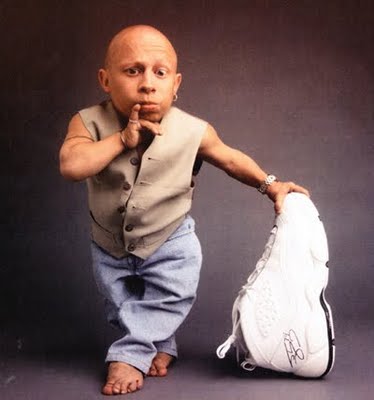 (Talk about empathic links make me think of a midget…and only one person who reads this blog knows why!)
(Talk about empathic links make me think of a midget…and only one person who reads this blog knows why!)
Clearly Darren Aronofsky and Ari Handel are quite confused about what the Bible says the story is about…but I guess they’re Jewish and don’t really put any stock in the New Testament at all.
13. What is the movie about?
In an interview with The Huffington Post, the point is made that the movie is “midrash on the Genesis story in the Hebrew Bible. Midrash is a valuable part of the Jewish tradition and is a kind of storytelling that explores the ethics and values in the biblical text”.
It’s not a straightforward retelling of the story as some sort of historical documentary, and it’s not meant to be. Ari Handel commented more on the film as midrash in his interview with Paste Magazine.
In the The Huffington Post interview, you also see this rather striking interaction:
Paul: If you were giving this film as a sermon, what would its title be?
Ari: Noah.
Paul: C’mon, at least give me a colon.
Darren: Noah: What It Means To Be Righteous
Paul: (Turning to Ari) Would you give the same title?
Ari: I think it is about the wickedness of man.
Paul: That’s yours? ‘Noah: The Wickedness of Man’
Ari: But that’s only half of the story.
Darren: The other half is the goodness
Ari: This is about mercy and justice.
Darren: It could be Noah: Mercy and Justice.
Ari: The story is a movement from justice to mercy, the balance of wickedness and goodness. Every character in the film has goodness and wickedness in them because every human being has wickedness and goodness in them.
So, there’s 13 questions and 13 answers, straight from the horses’ mouths. Seeing that this post is more than long enough, I’ve refrained from as much commentary as I could. Feel free to interact and post your thoughts in the comment thread!
Until Next Time,
Lyndon “Sweeping away the rumors” Unger
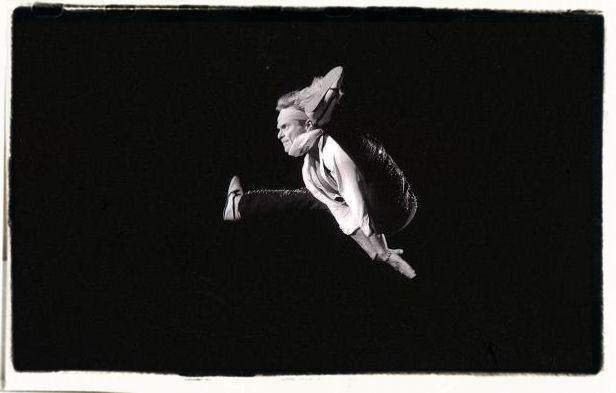

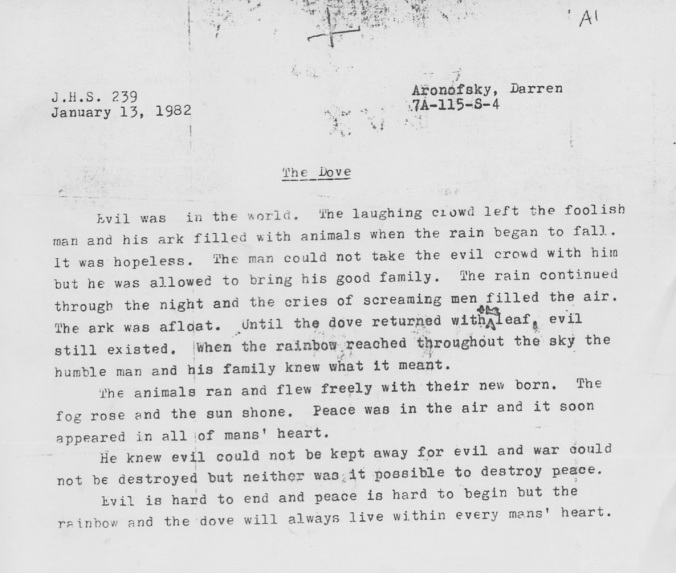
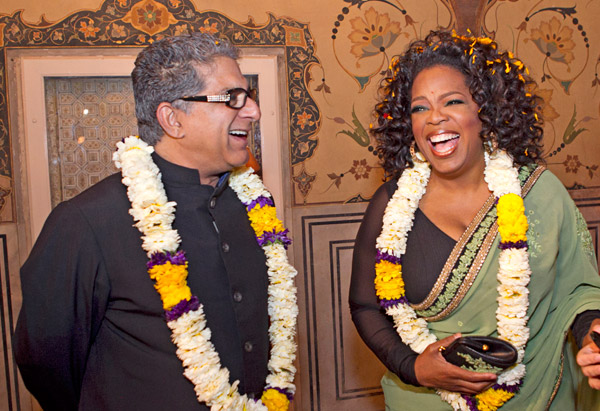


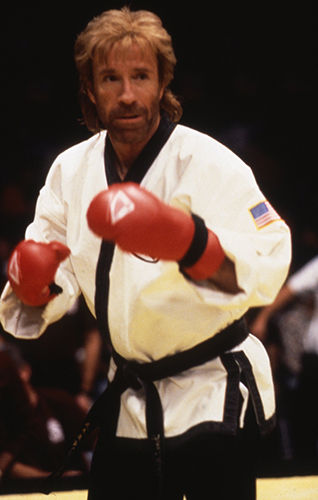



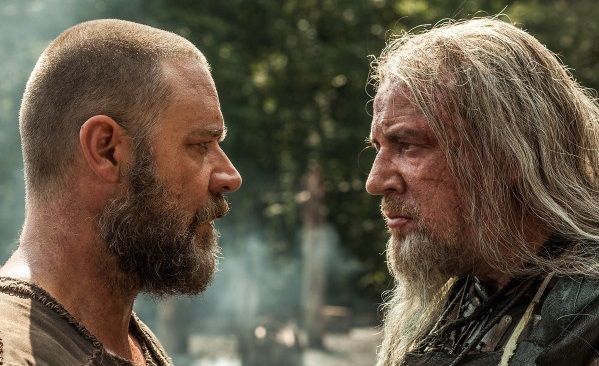


Thanks for this thorough analysis.
Can we expect further analysis? Or is this the end of Noah?
Probably the end. I have rather large other writing concerns that are currently pressing. If there is a specific question that comes up repeatedly, I may address it.
Not to slight the immense amount of work that went into this piece, but it made no difference for me whatsoever. My problem has always been with the world loving church. Not with unbelievers doing what unbelievers do. I don’t care what their motivation was. I expected a bible butchering movie from enemies of my God and His Christ and they didn’t disappoint. There is a nonstop flood (no pun) of filth, blood and blasphemy pouring out of the media entertainment industry with a whoring backslidden church leading the way in consuming it. I have no expectation of this situation improving anytime soon. This is just one movie. I know no more about the world or the church for it having been produced or myself having seen it.
It reminded me of why I don’t waste my life on TV or movies and it will likely be years if I ever go again.
It is, like pretty much everything else Hollywood produces, useless amusement for those who don’t know any better at best, and food of the gods for “art” and “culture” worshiping idolators at worst.
I love ya Lyndon, but others will appreciate this one more than myself.
Reblogged this on The Narrowing Path.
Clearly Darren Aronofsky and Ari Handel thought they were making a Biblical movie that was true to the scripture. They actually took offense to the accusation that they contradicted the scripture and defended themselves in several interviews.
I don’t understand how all of those quote that you gave above that led you to make that conclusion fit with the often quoted comment from Aronofsky that Noah is, the least biblical biblical film ever made. There seems to be a huge contradiction here in what he has said if that last quote is accurate.
http://www.christiantoday.com/article/aronofsky.brands.noah.the.least.biblical.biblical.film.ever.made/36237.htm
I’d dare suggest the contradiction isn’t actually there. I suspect that what Aronofsky means by “least biblical film ever made” doesn’t necessarily necessitate that he actually thinks Noah is behind “The Life of Brian” in terms of Biblical fidelity.
I bet if you find the original context for that quote, it would make far more sense. Its also worth noting that I came across the “least biblical film ever made” quote many times bit couldn’t track down the source. Aronofsky possibly didn’t say it at all…
It is supposedly from an interview he gave to “The New Yorker” magazine. The magazine is available online. But only in complete form if you are a subscriber. So I haven’t been able to read it see what is actually said..
A classic example of a serious misquote which has a lot of people getting their shorts in a knot – “those people can’t even get their quotes straight.”
And the correct quote is “the least-biblical biblical film ever made.”
Karli said,
A classic example of a serious misquote which has a lot of people getting their shorts in a knot – “those people can’t even get their quotes straight.”
And the correct quote is “the least-biblical biblical film ever made.”
Karli, minus the hyphen between least and biblical, that is precisely the way the article I copied and pasted that quote from had it listed. Check my comment above.
So, what are you saying is seriously misquoted? The quote from that article, or something else? The quote from the article as I stated above is what I was asking about. And I still do not know how that quote fits with the rest of what he has said.
And all that aside, even if he believed the movie to be biblical or based on the Bible narrative, I still see so much “artistic license” going on there, if you can even call the vastness of what Aronofsky did artistic license, that is very seriously changes the whole narrative as reported in Genesis.
Alright Lyndon. What’s goin on here brother? 🙂 Are we to receive this as a creeping retraction of your already once softened review?
Did you see a different, less “evil” movie now that Aranofskey and Handell seem a bit groovier? I’m asking with my tongue halfway in my cheek. a href=”http://tiribulus.net/pix/smiley-face-angel.gif”>SINCERELY
SINCERELY
(don’t ask me what happened to my tags the firs time)
You may have noticed that I refrained from giving a whole lot of commentary on this.
I’m just providing information for people on a subject that is flooded with misinformation and trying to be of as wide a benefit as possible.
mennoknight says: “You may have noticed that I refrained from giving a whole lot of commentary on this.”
Indeed I did. Now having returned to my senses and given due consideration to your long, well established history of quiet restraint and halting hesitance to take a position on things, I do hereby withdraw my question in wonderment of whatever on earth I could have been thinking. 😀
I’ll be keenly interested in what Fred and SlimJim and a few others take away from this.
=================================================================
Karli declares with consternation:
And the correct quote is “the least-biblical biblical film ever made.”
IT IS!?!?!?!?!?!? Well hallelujah and thank God we got that straightened out!!! All this was for nuthin!
(my anti snark meds haven’t kicked in yet today. Sorry)
Thank you for compiling all this information in one place for our perusal. It does become apparent that from a humanistic standpoint, Aronofsky and Handel are not believers in ANY sense of the word. They don’t understand or give credence to the idea of Biblical inerrancy, or even proper historicity. Instead of telling the story as given in Genesis, their continual search for more material to “fill in the gaps” tells more about them as storytellers than it does anything else. They obviously didn’t like the “story” as told in Genesis and felt it needed “punching up” to make it palatable to 21st Century audiences. Because the Gospel and dare I say Scripture in general is “foolishness” to men who have not accepted Christ it should come as no surprise at all that their re-telling of the story bears as much resemblance to the original as cottage cheese resembles a nuclear reactor.
There is certainly a lot of information you provide. Even after all of that data one wonders about the author’s hermeneutical priorities, if any. “When Ari and I started working on the project and started reading the Bible over and over” A seeming endorsement for the doctrine of Sola scriptura? Not hardly I suspect. Canonical, apocryphal, even pseudepigraphal works were consulted, not to mention Midrash? The tale wagging the dog or a search for more inspiration? Although it is not a part of the Hebrew Bible the authors claim to have consulted, my guess is that your banner admonition from 1 Timothy 4:16 wasn’t necessarily in the author’s mind at any point in the writing of Noah.
“Paul: That’s yours? ‘Noah: The Wickedness of Man’”
“Darren: It could be Noah: Mercy and Justice”
How about a movie tile like ‘Noah: Transmogrified’ ?
Noah Transmogrified? I like it!
I wasn’t suggesting that they had some sort of hermeneutical priority for a historical-grammatical hermeneutic or sola scriptura. They did openly say that they were trying to be faithful to the text and Jewish tradition, but the text came first for them. They weren’t simply hacking and slashing the Torah for giggles or anything like that.
Thank you again for the research you have done on this. Helped me immensely as I see from this and the other article you wrote the circle logic said by those leaning to the left.
Pingback: Running With the Devil: An Exploration Behind the Noah Movie | Watch Your Life and Doctrine Closely… | Prisoner of Christ